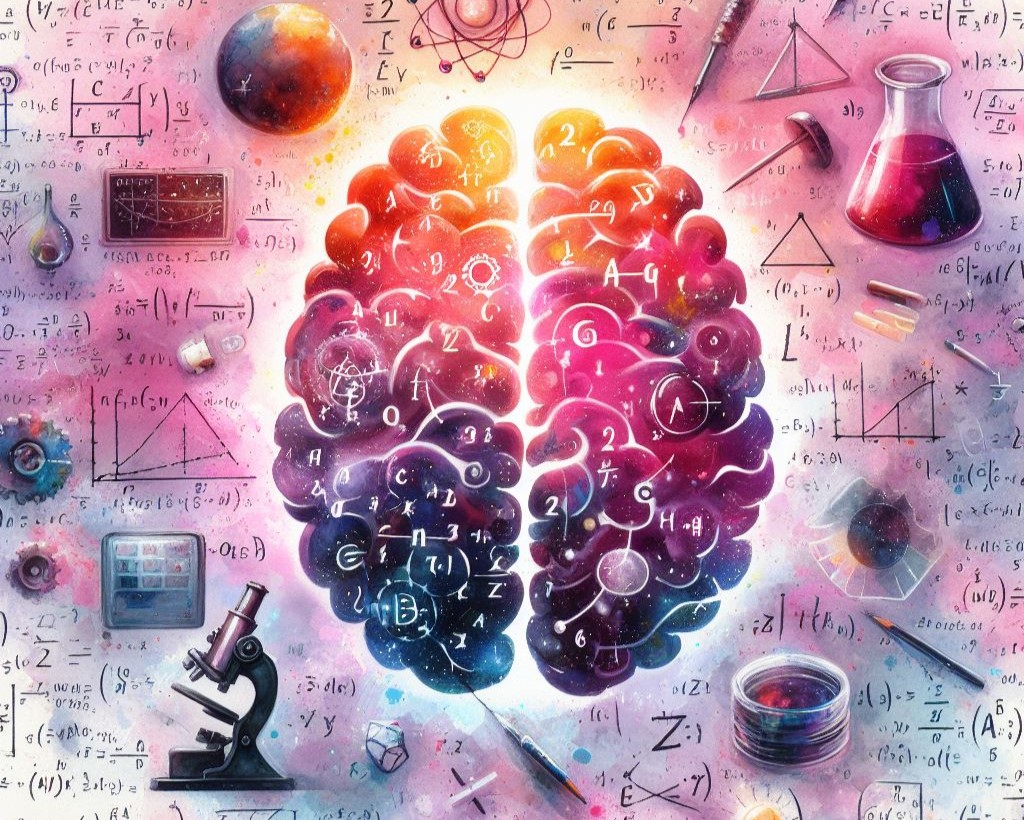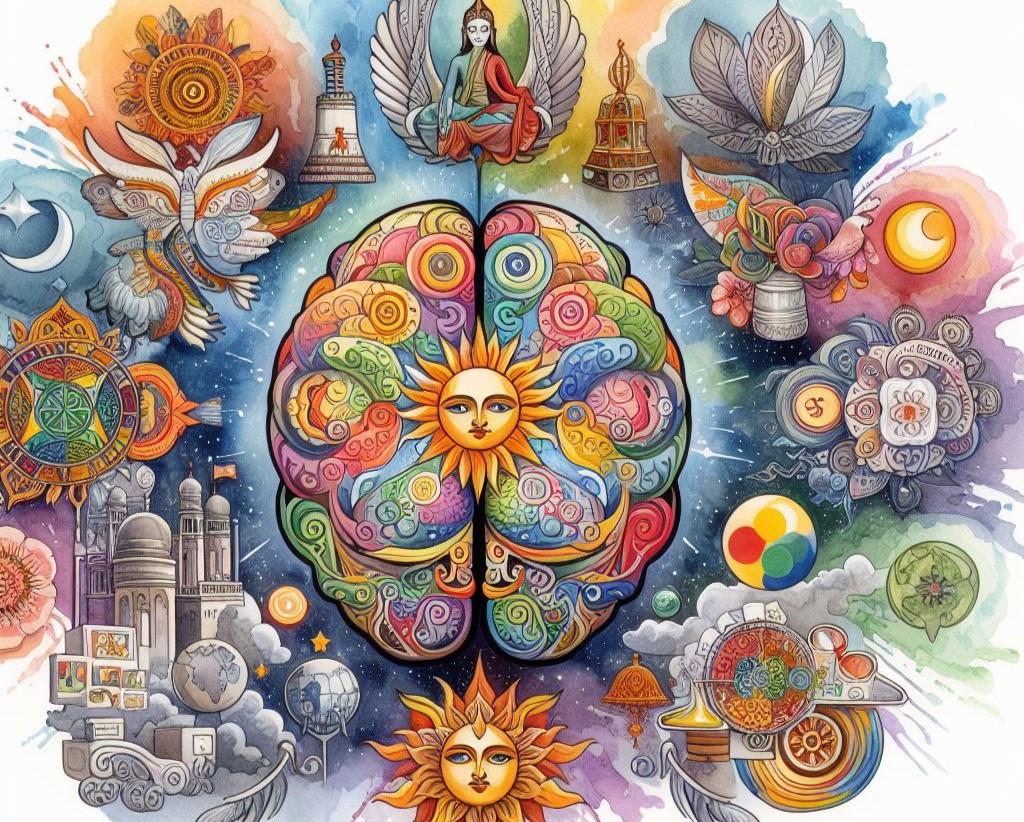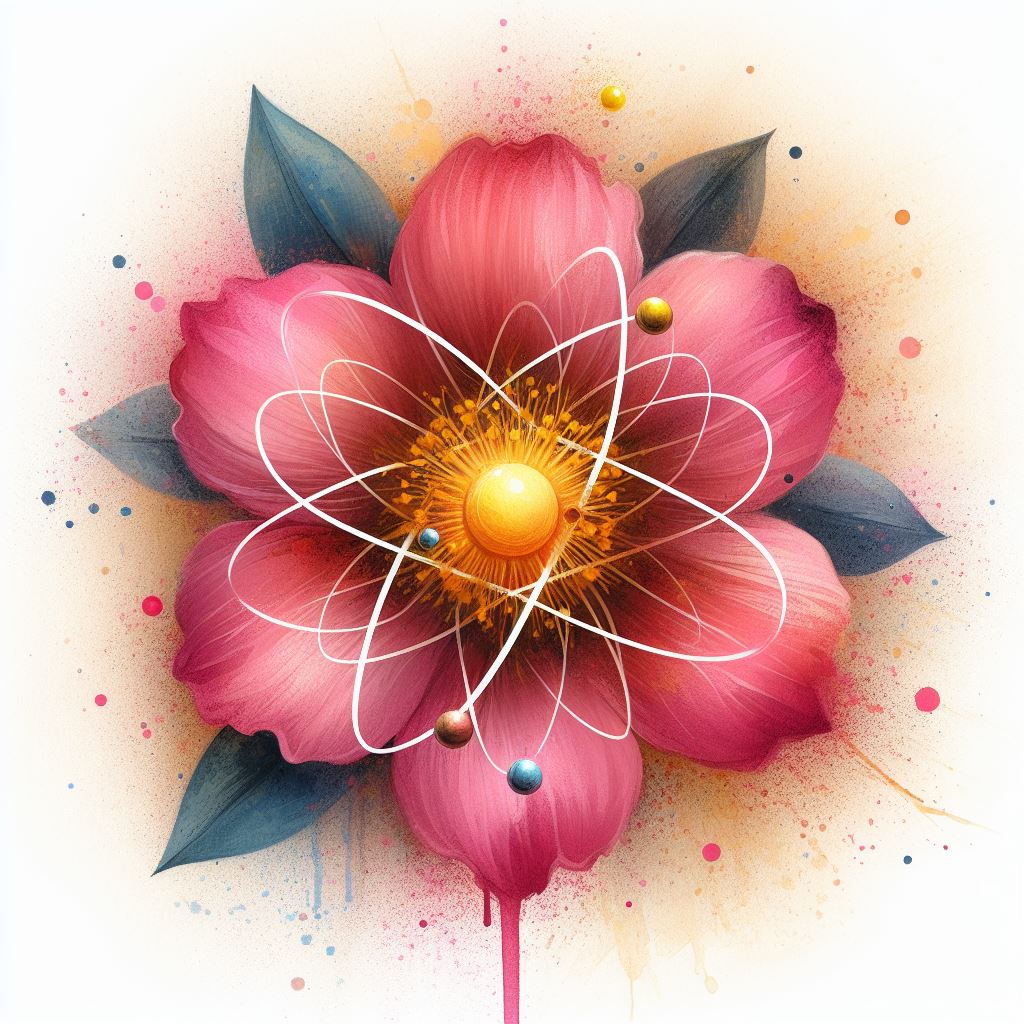Our world has never been more polarized.
On one side, we have team science: People who solely endorse the scientific method and discount anything that can’t be proven via conventional methods. On the other side, we have team spirituality: People who are glued to their belief systems, regardless of how nonsensical they are.
But where’s the middle ground? The rational perspective where maybe, we’re barking up different trees?
We tend to see science and spirituality as opposing constructs, but is this the truth, or is our own bias coming into play?
Science and spirituality are different languages to understand our universe. But neither of these constructs is wrong, the same way Japanese isn’t wrong, just because you don’t speak it.
Let’s look at a balanced approach to science and spirituality where you can discover a middle ground, and ponder the question of life from a rational perspective.
Finding the common ground between science and spirituality

In a nutshell, science and spirituality are different ways of understanding our universe. Look at them as different languages of the universe.
Both of these languages have pros and cons, and each views reality from a different perspective.
For example, Spanish is a romantic language. It’s got a colorful palette for expression, but it’s not as efficient as German. German is a very structured and efficient language, but this comes at the compromise of expression.
Curiosity is the mother of science, to discover how things are the way they are, and wonder is the mother of spirituality, to understand why things are the way they are.
Science is the pursuit of reason. Spirituality is the pursuit of meaning.
Even though they seem so different on the outside, science and spirituality have a unique polarity. Understanding this polarity gives you a more holistic view of our universe. You can learn more about this dynamic below:
The yin and yang of our universe
Spirituality is considered the feminine counterpart. This is the intuitive language that speaks via the heart. Science is the masculine counterpart. This is the rational language that speaks via the mind.
One counterpart is pragmatic, while the other is philosophical. These two bodies of knowledge don’t compete as they’re seeking different answers.
The goal of spirituality is to seek understanding beyond this dimension of experience. Science is a method to learn about our physical universe.
Neither science nor spirituality is irrelevant in the quest for understanding because they need each other to get a full picture of what the heck we’re doing here!
Understanding the language of science

Science has proven itself to be an accurate way of understanding how our reality functions.
The mother tongue of science is mathematics. Science provides empirical evidence, research, and theories through various branches such as physics, chemistry, and biology. Each discipline is highly specialized, which allows us to study any given subject with precision.
Even if there’s no objective evidence, science uses its knowledge to provide plausible theories about any given subject. The findings are usually pretty conclusive which makes life a whole lot easier. This makes science an accurate language that provides all the little details about our universe in general.
Strengths of science
Science is objective as it’s all about gathering reliable data that’s not based on dogma or blind faith.
The thing about the scientific method is that it can be replicated. Due to all the scrutiny, review, and continuous refinement inherent in the process, information gathered through it is generally quite solid.
There is not much room for misinterpretation, opinion, or bias which gives it a certain degree of trustworthiness. As researchers can verify findings and build upon them, this gives the information another layer of validity.
The scientific method is a also powerful tool for solving complex problems. By systematically analyzing data and testing potential solutions, the scientific method is perfect for addressing challenges in various fields.
Limitations of science
Science is accurate, but short-sighted. It can only work in its immediate proximity.
Science can only move as fast as our research. In general, it’s a slow process to get hard evidence about something. We can’t move faster than what our technology, methods, and capabilities allow.
As the scientific relies on data that can be observed and measured, this is a limitation as there’s a whole lot about our universe that simply can’t be measured.
What we once thought we knew has been replaced by more recent discoveries, and what we currently know will be replaced by future discoveries. So is it actually that reliable?
And not to say that the research isn’t subject to bias, corruption, and influence. Have you ever wondered who funds the research, and if there’s an ulterior motive to it?
What's inside the box
To a monkey, politics don’t exist. This isn’t because politics don’t actually exist, it’s because the concept is way beyond the comprehension of a monkey.
Humans are quite similar. We very much have a what’s in the box view of reality, while anything outside of that box is considered to be nonsense, of course, until science catches up.
Many concepts are simply out of the range of science. We may be able to break matter down into tiny particles, but can we explore what’s outside the universe? Can science measure consciousness, spirit, other dimensions, and singularities?
Considering how far science has come, it can only understand so much about our immediate proximity. The amount of information we have access to is probably just a fraction of what’s out there.
This is one of the major downfalls of the scientific method. If you can’t prove it, it mustn’t exist at all!
Simply put, there is no way of understanding what we don’t know because we have no way to perceive outside the box.
Perhaps, we can’t know some of the deeper mysteries of existence via the scientific method, because they’re simply too complex for us to measure.
Knowledge is favored over wisdom
Science is pragmatic. This is good for breaking down information, but it’s not for looking at the bigger picture.
Scientific theories are based on knowledge. This isn’t a bad thing as these theories are often fairly accurate, but it becomes very matter of fact, rather than exploring what could be.
Conventional science has no standing in subjects such as morality and ethics, philosophy, or spirituality. Can science tell you how to be a good person, and how to find fulfillment in life? Can science disprove god, just because god hasn’t been tangibly observed?
Our conventional methods, technology, and knowledge are great for some things, but at the end of the day, science is just a tool.
The language of spirituality

Spirituality looks at the grey zones that science can’t. It’s the more colorful language of the universe, that speaks experientially rather than pragmatically.
While science inspects the rules that govern this physical realm, spirituality looks at why these rules exist in the first place. It looks at the backstage rather than the show. It is about discovering what’s beyond matter, rather than what it’s composed of.
Spiritual practices are a medium to connect with these deeper levels of existence. People connect with spirit via meditation, ceremony, rituals, mysticism, shamanism, and other spiritual modalities.
Strengths of spirituality
Spirituality is a search for meaning which leads people to explore their consciousness and live happier lives.
The spiritual model encourages self-exploration and personal insight. This is the approach that meaning to life must be cultivated within, rather than searching outwards for meaning.
As spirituality is experiential, it’s something that you connect with. Even though these dimensions of experience may not be proven with science, people who experience transcendent states of consciousness will agree with absolute certainty that there’s a whole lot more than what meets the eye.
As someone who has explored various cultural modalities and has had transcendent experiences myself, the experience is proof enough, yet it can’t be communicated to people who are thinking through a scientific lens.
Limitations of spirituality
Since spiritual wisdom cannot be proven, analyzed, or even well understood, this makes it subjective.
Because the experience is so personal, many people can lie about their experiences or makeup stuff, and nobody has any way of verifying it.
This makes it difficult to discern people who are having real experiences from people who are pretending.
Without the ability to communicate with one another, there’s no baseline. How can you possibly compare experiences or find common ground, considering any given experience could be exaggerated or played up to be more profound than it was?
Many people around the world claim to have spiritual experiences that can’t be explained by science. But an issue is that nobody else can witness these experiences when they could be something that’s easily explained.
We know the mind is a powerful thing, so could it be that many of these spiritual experiences are just anomalies in the person’s mind?
The problem with spirituality is that no matter how many crazy interdimensional experiences you’ve had, the best you can do is say you don’t know for sure.
Furthermore, everyone has different beliefs and understandings Even though there are commonalities and universal principles, people will interpret spirituality differently depending on their personal experiences with it.
The subjective, and personal nature of spiritual experiences makes it hard to properly identify. Therefore these experiences are extremely difficult to study or learn more about in the scientific framework.
Spirituality without dogma
Let me make this very clear. Spirituality is different from religion. Religions are simply interpretations of spirituality, and dialects of the mother tongue.
But spirituality itself has no dogma. It has no rules. Stripped to its skeleton, spirituality is a search for a deeper meaning that transcends this physical reality. Paying with the idea of different dimensions is well and truly beyond us.
So we create stories to try and understand what’s really going on here.
In this sense, spirituality is the notion that something beyond this universe exists. But at this point, all we have are theories, and this is the role that religions play.
So don’t believe that dogma is a part of spirituality, because the core of spirituality is finding your own journey towards truth, and applying this truth to live your happiest life.
The core of spirituality
There are many different interpretations of spirituality and what it is. These interpretations vary wildly. Some religions will say spirituality is this, while other people will say spirituality is that.
Spirituality has however had a presence for thousands of years, in every culture of the world. There are many similarities between these cultures and beliefs, pointing towards the same concepts and ideas. The concepts of spirituality connect all the dots between theist beliefs, cultural beliefs, and other ideas that have had a presence all over the world for thousands of years.
This is one of the intriguing things about spirituality, which does give it some validity, is that all interpretations and religions tend to overlap. I suggest you read the article below to gain a broader idea of this phenomenon.
The future of science and spirituality

Science and spirituality are touching different parts of the giant elephant we call life, and recording it in different languages. But since these languages are so vastly different from one another, building a mutual understanding and respect is the hard part.
Look at it this way:
Science pieces together the puzzle of life, to form a picture.
Spirituality looks at the picture these pieces create.
Science explores the micro – How things work.
Spirituality explores the macro – Why things work.
Together they work in unison, to connect the puzzle of life, and figure out what’s going on from both a rational perspective and a philosophical perspective.
It’s becoming more apparent that science is beginning to penetrate the realm of spirituality, and vice versa. Society itself is changing to accommodate the union of these two constructs. From something that once seemed so separate, we are starting to see them mesh.
Every day, science and spirituality inch closer together. We can see this through the interconnecting of cultures. Spiritual disciplines are becoming more accepted and widely accepted. Western medicine, ideas, systems, and structures have found their place in Eastern society.
The goal here is to have the best of both worlds. To have incredible science, while utilizing the wisdom of spirit.
It’s important to look at the possibilities of what science might understand in the future, and not get stuck to what it thinks it knows now. When you start looking at it this way, how can we possibly know what strange and alien concepts will be discovered, researched, and proven in the future?
Maybe in millions of years when the human genus has drastically evolved, given that we get that far, we will see modern humans the same way we see Neanderthal. This opens the door to exciting possibilities. As science explores distant concepts, perhaps the concept of spirituality, alternate dimensions, and higher-beings won’t seem so far-fetched.
Some of our modern discoveries are already pretty mind-blowing, so you can only speculate. Therefore, it’s important to take modern science with a grain of salt, even if it has been thoroughly tested, because new discoveries can always blow what we know out of the water.
You can only imagine what information is waiting to be discovered. Once realized, it opens your mind to new approaches for life, and an endless stream of possibilities.
Remember:
- Science and spirituality are different approaches to understanding the world, not necessarily competing ones.
- Both can offer valuable insights and tools for living a meaningful life.
- Open-mindedness and critical thinking are crucial when exploring either domain.


1 comment
Well written, appreciate your thoughts.